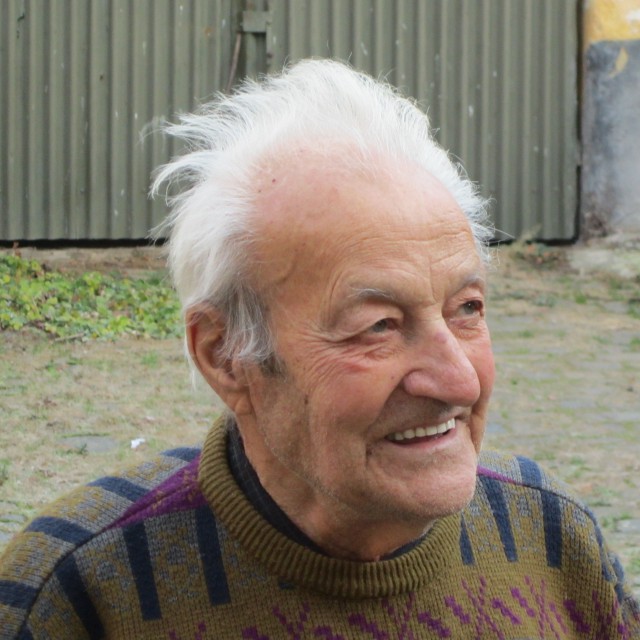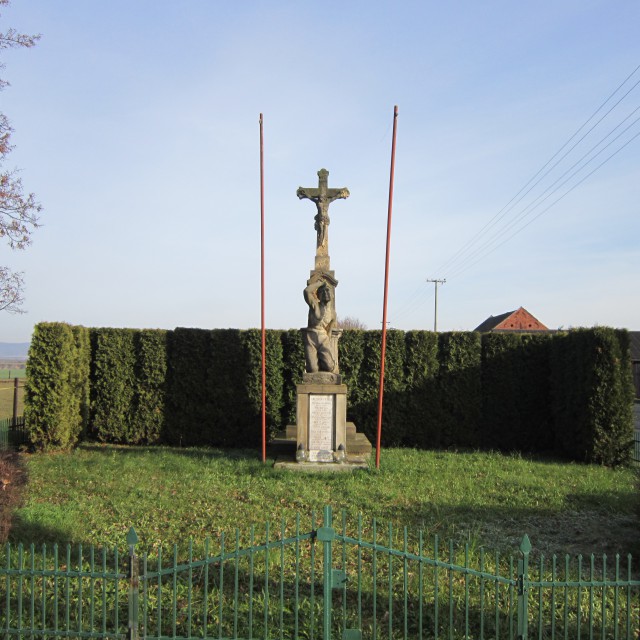They wanted to take revenge
On May 1, 1945, the soldiers of the 574th Cossack battalion fighting on the side of Nazi Germany ravaged the village of Přestavlky, murdering seven men and burning down five houses. After having committed the crime, they left. The news about the tragedy spread quickly and Jan Sklenář went to take a look to Přestavlky right on the same day. On the outskirts of the village, he saw the dead bodies. “The members of the Mačák family lay dead on the ground. One of them was, I don’t know why, wrapped in a duvet”, the witness recalls. The crowd that had gathered at the place included several enraged people from the village and its surroundings. “Suddenly, a car with guns arrived there and everyone just grabbed a rifle. Me too. We saw a German car coming from the direction of Hostkovice to Vacanovice. So we took cover just outside of Přestavlky with the aim of shooting at them when they come to the village. But they only drove to Vacanovice, where they turned around and went back. If they had driven towards Přestavlky, we’d have opened fire at them. When they were gone, all of us got scared of what we had planned to do and of the guns we were holding in our hands. So we put them back into the car. The car then drove away and disappeared somewhere.” Jan Sklenář. Source: Memory of Nations.
Hodnocení
Abyste mohli hodnotit musíte se přihlásit!
Trasy
Příběh není součastí žádné trasy.
Komentáře

Jan Sklenář
Ing. Jan Sklenář was born in 1922 in Vacanovice in the Olomouc region in the family of the second largest farmer in the village. Shortly after the occupation of Bohemia and Moravia by the Nazi Germany, the family hid a large supply of weapons from the resistance organization Defense of the Nation on their farm in July 1939. After the hiding place had been discovered, his father Jan Sklenář was arrested in 1943 and threatened with death penalty. It was only thanks to the help of his friends and the initiative of the German state prosecutor Roland Jarosch that he was eventually sentenced "only" to six years of imprisonment. His son Jan Sklenář Jr. was likewise suspected of collaboration with the resistance, and he was interrogated by the Gestapo in Olomouc several times. His father not only survived the prison, but he also endured the death march at the end of the war, and after several months of medical treatment he was able to return home. Jan Sklenář Jr. took over the prospering farm in 1950. The communist regime already began with the collectivization of village farms at that time. Jan Sklenář refused to join the agricultural cooperative and he suffered harassment from local officials. In a conflict situation, Jan attacked a deputy of the ministry of purchasing, and he was consequently brought to trial. His connections eventually helped him and he was thus released with a two-month suspended sentence, but he had no choice but to join the Unified Agricultural cooperative (JZD). As a so-called kulak he was forced to terminate his long-distance study at the college of agriculture. Local officials knew of his expertise, and when the cooperative was on the brink of bankruptcy, they appointed him as an agronomist. Jan Sklenář accepted the position under the condition that he would be allowed to finish his studies. He proved successful in his job and three years later he became the chairman of the cooperative. He still lives on his native farm.



